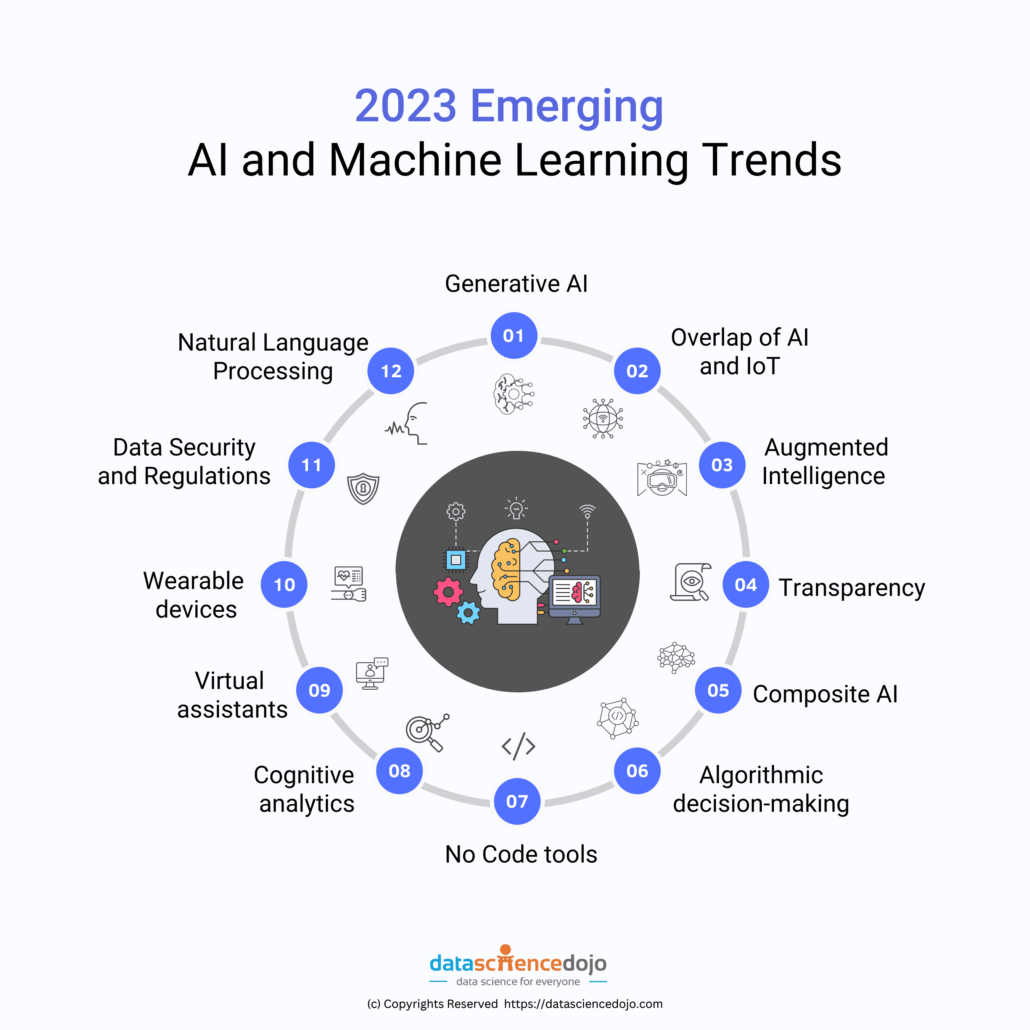In today’s fast-paced business world, the incorporation of AI is transforming the way we work, providing firms with the means to discover new potential and optimize their operations. The traditional view of AI as a tool for automation is transitioning to a more integrative approach where AI augments human capabilities. This partnership between digital innovation and human intellect not only enhances effectiveness but also encourages innovation and creativity at work.
As organizations embrace AI, they realize it can manage routine tasks, analyze vast amounts of data, and even predict market trends. This empowers workers to dedicate their efforts to high-level strategic thought and issue resolution, leading to a surge in productivity and involvement. Through the effective use of AI, organizations can cultivate a savvy workforce that integrates seamlessly with technology but also leverages AI to enhance human potential, fostering success and expansion in an ever more competitive climate.
Artificial Intelligence and Employee Partnership
Artificial Intelligence is changing the way companies operate by improving workforce collaboration. By streamlining mundane tasks, Artificial Intelligence liberates employees to focus on more creative and strategic initiatives. This enables teams to capitalize on their unique human talents while Artificial Intelligence handles time-consuming analytics and operations. As a result, employees can contribute more value to their organizations and engage in work that stimulates their skills and passions.
Additionally, Artificial Intelligence tools enhance communication and cooperation among staff. Cutting-edge systems can assess project progress and provide guidance, helping teams make educated decisions more quickly. This creates a more flexible work environment where employees can seamlessly share information, ideas, and responses. The collaboration between AI and human workers encourages a culture of innovation, ultimately driving productivity and maximizing overall efficiency.
Finally, with the incorporation of AI, organizations can tailor the employee experience. AI can help identify individual strengths and areas for growth, enabling personalized tr ai ning and support. This tailoring not only enhances employee satisfaction and retention but also fosters a more skilled workforce. By utilizing the strengths of both Artificial Intelligence technologies and human knowledge, businesses can achieve greater achievement in today’s competitive landscape.
Boosting Capabilities through AI

The integration of AI in the workplace not only streamlines operations but also plays a crucial role in enhancing the skills of the workforce. Artificial Intelligence tools deliver workers with personalized learning opportunities, adapting to their competence levels and educational paces. This specialized approach enables employees to effectively obtain new knowledge and refine existing competencies, ultimately boosting overall output.
Furthermore, AI-driven analytics can spot ability gaps within departments, facilitating businesses to direct their educational efforts where they are needed most. By making use of real-time data, companies can craft targeted training programs that correspond with individual professional goals and organizational needs. This strategic strategy fosters a more skilled workforce, boosting job contentment and employee retention.
Finally, as Artificial Intelligence takes over repetitive tasks, workers are liberated to engage in more challenging and creative problem-solving tasks. This change not only develops their competencies but also fosters innovation within the organization. As workers are motivated to explore new concepts and solutions, the overall business responsiveness enhances, placing organizations for long-term success in a competitive market.
Upcoming Implications of AI in the Work Environment
The incorporation of Artificial Intelligence into the work environment is set to transform employment positions and organizational structures. As AI technologies continue to develop, they will increasingly be responsible for performing routine tasks, allowing human workers to concentrate on more strategic and creative endeavors. This shift not only enhances efficiency but also fosters innovation as teams are freed from tedious responsibilities to participate in critical thinking and problem-solving.
Moreover, the capacity of AI to process large volumes of data will provide businesses with deeper insights into market trends, customer behavior, and business efficiencies. This data-driven method will allow organizations to execute more informed decisions, anticipate changes in the marketplace, and tailor their products and services to meet evolving customer needs. As companies utilize AI tools for data analysis, they will gain a market advantage that can greatly impact their prospective expansion and long-term viability.
In the future, the collaboration between people and artificial intelligence will create new opportunities for professional development and career growth. As the labor force adapts to emerging technologies, there will be a need for individuals who can collaborate with artificial intelligence systems effectively. This will drive the need for ongoing learning and training, ensuring that employees are prepared with the capabilities necessary to thrive in an automated world. By accepting these changes, businesses can realize the complete capacity of a smart workforce that harmonizes human innovation with AI efficiency.
